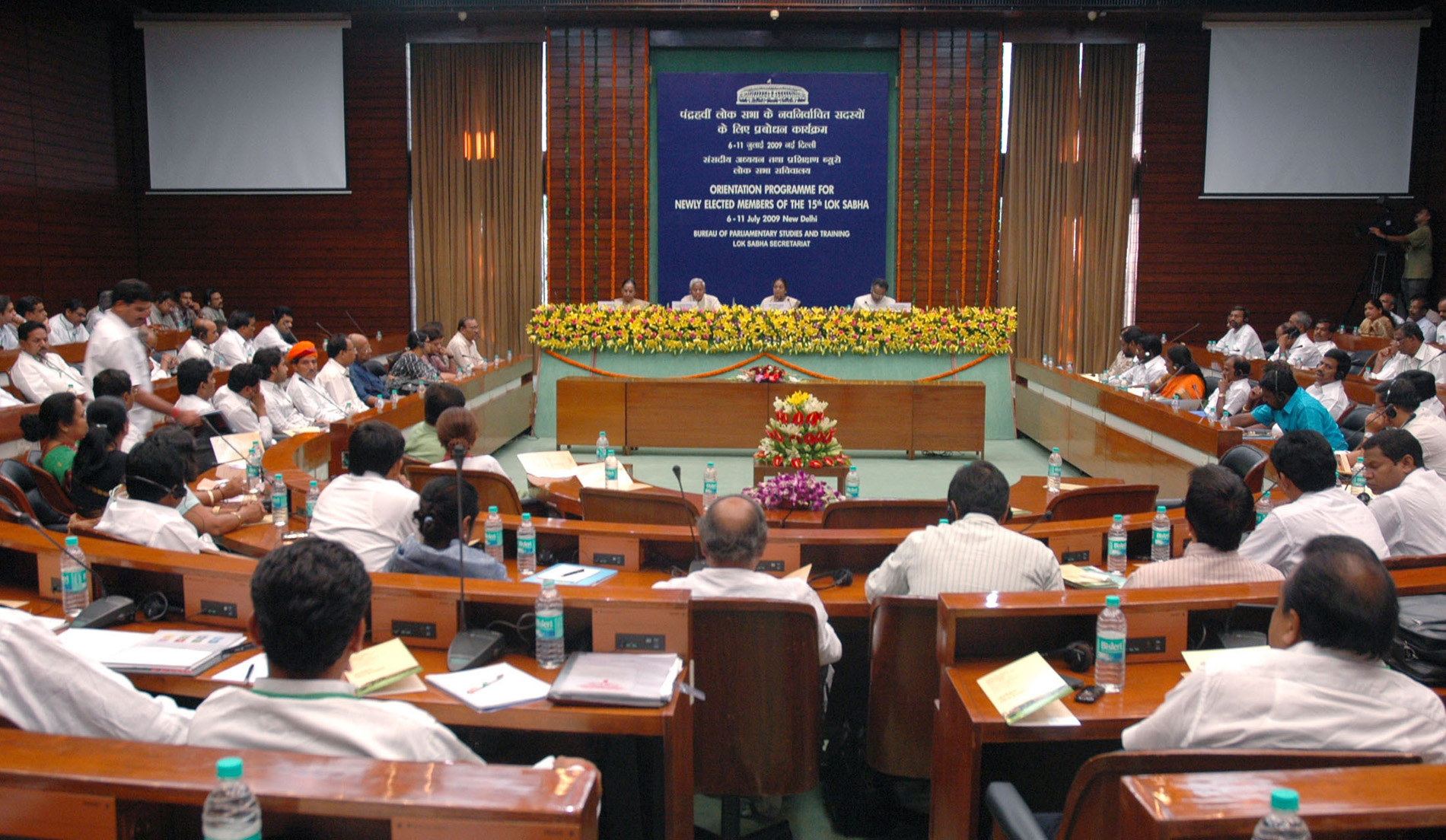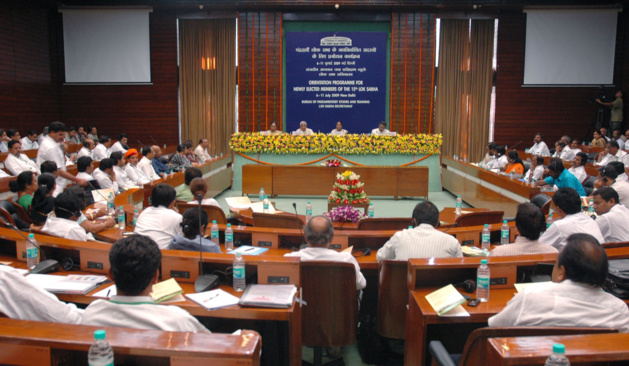The members are elected for five years terms, and the party with the majority of elected representatives in Lok Sabha is asked to form a government. The Lok Sabha has a total of 545 members, 2 of which being nominated members while the others are elected by the people. The election commission is expected to announce the dates for the election, and rumours pertaining them are plenty. Many peg it between from mid- to the end of April.
Less productive House
This edition of Lok Sabha has been subjected to ridicule for being less productive than previous ones. The winter session of the Parliament only passed one bill, the Lokpal Bill, while a total of 31 bills were listed for consideration for this session. 133 bills have made its made through the lower house is 133. This is only half the number that passed during the first Lok Sabha (1952-1957). The house had then functioned for only 1331 hours, spread over 345 days over the five-year term. This Lok Sabha proved to be productive for only 63% of its duration, but only 20% of the time worked was to legislative effect. Over 522 hours of its time were flushed down due to disruptions by the members.
Chaos towards the end
The Lok Sabha was the stage of chaos towards its closing days. The bill pertaining to the creation of 29th state in India, Telangana, was the centre of most chaos. This bill would thus divide Andhra Pradesh into two separate regions. Several MPs were against this and had their own ways of protests. One of them used pepper spray while the bill was first considered. The house turned into chaos and the speaker had to cancel the proceedings from going any further. MPs who were responsible for this chaos were later expelled from their parties. This disruption was greater than those erupting when audit reports regarding the 2G spectrum and Coal block allocations were considered. These reports indicated huge loss for the Exchequer because of flawed allocation policies adopted by the government. The opposition created a huge ruckus and the entire session was almost washed out.
Black out on TV
The house was subjected to some criticisms towards the end of its term when Lok Sabha TV, a live TV channel which broadcasts the proceedings of the house, was blacked out just a minute after the debates on Telangana Bill began. The CEO of the channel claimed it to be a ‘technical glitch’. The blackout lasted 90 minutes and before the services could resume, the Telangana Bill was passed in the house.
This called for criticisms from various sections of the media. It was believed to be a form of censorship to prevent the public from knowing the proceedings of the lower house, especially in the event of such a landmark bill. An MP from the Telangana region justified this by saying that the Speaker had all the powers to order a blackout, in contradiction to the actual claim of a technical glitch. The same MP also said this move was initiated to avoid any further tensions from the groups who wanted a united Andhra Pradesh. This issue of a separate Telangana had been a long persistent one and the Government of India had recently agreed to the creation of the state.
This called for criticisms from various sections of the media. It was believed to be a form of censorship to prevent the public from knowing the proceedings of the lower house, especially in the event of such a landmark bill. An MP from the Telangana region justified this by saying that the Speaker had all the powers to order a blackout, in contradiction to the actual claim of a technical glitch. The same MP also said this move was initiated to avoid any further tensions from the groups who wanted a united Andhra Pradesh. This issue of a separate Telangana had been a long persistent one and the Government of India had recently agreed to the creation of the state.
Though the 15th Lok Sabha was not very productive, it passed several key legislations including the RTI (Right to Information) Act, the Food Security Bill and the Lok Pal Bill. The RTI asked for more transparency in the government procedures, while the Food Security Bill ensured that adequate amount of food (grains) are provided to the citizens. The Lok Pal bill came through in the last months of the Lok Sabha. The house also passed the RTE (Right To Education) Act which ensures free and compulsory education up to the age of 14. One of the last bills to come through was the Whistleblowers Act, which provided protection to whistleblowers who reported corruption or misdealing of any kind.
Since the Lok Sabha has finished its term any new law that requires immediate addressing to would mostly be taken through the ordinance route, wherein the President of India will issue the ordinance based on the recommendations of the Prime Minister and Cabinet Ministers. This ordinance would be valid for six months, after which it would have to be approved by the Parliament to take effect as a law.
Since the Lok Sabha has finished its term any new law that requires immediate addressing to would mostly be taken through the ordinance route, wherein the President of India will issue the ordinance based on the recommendations of the Prime Minister and Cabinet Ministers. This ordinance would be valid for six months, after which it would have to be approved by the Parliament to take effect as a law.






























